Sustainable Bioeconomy Council
Sustainable Bioeconomy Strategy
During the implementation and development of the Sustainable Bioeconomy Strategy, the Sustainable Bioeconomy Council, comprised of seventeen experts from various divisions and sectors of the bioeconomy contributing their knowledge, will advise the state government.
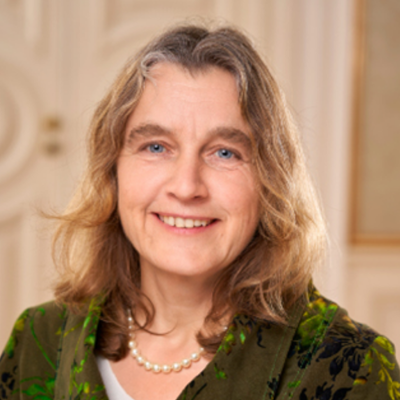
Prof. Dr. Iris Lewandowski (Chair)
“Baden-Württemberg is a leading bioeconomy region of the EU, because it recognized the potential of the bioeconomy early on and subsequently put relevant research and educational programs into place.”
Professor Iris Lewandowski heads the department “Renewable Raw Materials in the Bioeconomy” at the University of Hohenheim. The focus of her research is sustainable production as a part of the bioeconomy. Beyond that, she has made a name for herself in the development of interdisciplinary educational concepts, and has established Germany’s first bioeconomy master’s program (MSc Bioeconomy). As chief bioeconomy officer (CBO), she coordinates the diverse range of activities and collaborations of the University of Hohenheim, such as activities within the context of the European Bioeconomy University (EBU), for example. In January of 2020, she and Professor Dr. Daniela Thrän became chairs of the Federal Bioeconomy Council (Bioökonomierat der Bundesregierung) for an initial period of 3 years.
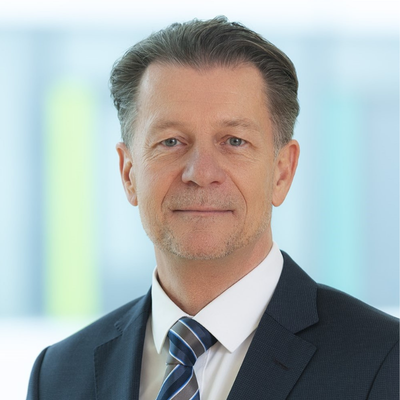
Dr. Markus Wolperdinger (Chair)
“Innovation and sustainability combined are the basis of human well-being and a healthy environment.”
Head of Fraunhofer Institute for Interfacial Engineering and Biotechnology (IGB), Co-chair of the Sustainable Bioeconomy Council of Baden-Württemberg, Vice-Chairman of the Federal Bioeconomy Council. “With sustainable technologies for a healthy person in a healthy environment.” This motivation is what drove this chemist through his international career with innovative start-up companies, in medium-sized enterprises, and in leading positions in globally active large industries. Dr. Wolperdinger collected experience in development, sales, and management, and ultimately focused his scientific activities on the efficient implementation of the combination of biology and engineering.
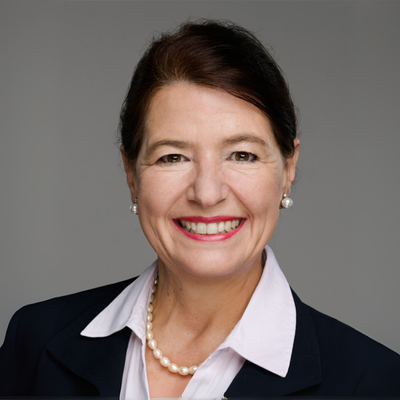
Prof. Dr. Regina Birner
“In the innovation-enthusiastic Baden-Württemberg, the bioeconomy is offered a significant chance at transforming the economy.”
Professor Regina Birner holds the chair for Social and Institutional Transformation of Agricultural Development at the Hans Ruthenberg Institute of the University of Hohenheim. She studied agricultural sciences at the Technical University of Munich School of Life Sciences, receiving her doctorate and habilitation at the University of Göttingen in the field of agricultural economy. Before her appointment to the University of Hohenheim in 2010, Professor Regina Birner led the governance research program of the International Food Policy Research Institute (IFPRI) in Washington, DC. Her research deals with the challenges of global food security and the sustainable development of the bioeconomy. Professor Regina Birner has over 25 years of research experience in countries of the global south. She has been a member of the Federal Bioeconomy Council since 2012.
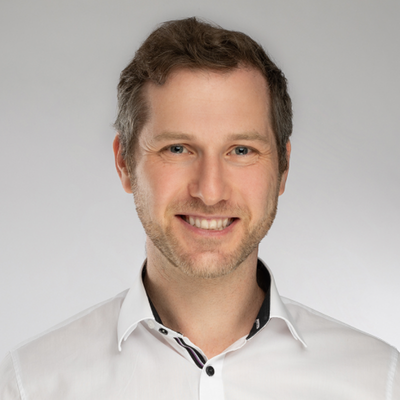
Michail Ginsburg
"The bioeconomy is the key to the future of Baden-Württemberg - it connects sustainable development with economic growth and strengthens the position of regional industry here in the heart of Europe."
Michail Ginsburg is CEO of OutNature GmbH, a trademark of the enivornmental services provider PreZero. OutNature develops, produces, and distributes fiber-based materials made of cup plant for the paper and packaging industries. In this way, the company unlocks the potential of regional and renewable raw material sources while conserving natural resources. Ginsburg studied engineering economics and mechanical engineering at the Heilbronn University of Applied Sciences and Albstadt-Sigmaringen University, as well as at the University of South Wales. After working at a car component supplier, he has been at Schwarz Group since 2013. The focus of his work is in the fields of Corporate and Business Development.
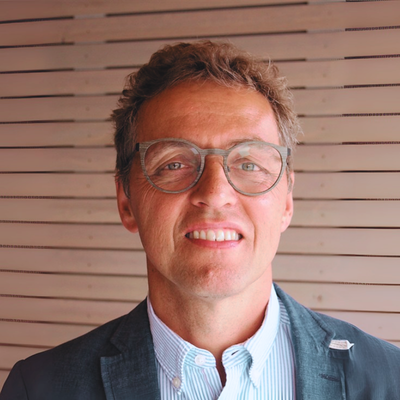
Dipl.-Ing-Agr. Thomas Karle
“The bioeconomy strategy of the state government is extremely interesting, innovative, and forward-looking, and I’m excited to be able to play a contributing role as a member of the council.”
Thomas Karle studied agricultural sciences at the Nürtingen-Geislingen University of Applied Science. He has operated a biogas plant since 2001 and currently provides a variety of national and international seminar and advisory services in the field of biogas. He’s been recognized several times for his activities, winning, among others, the Environmental Prize for Enterprises BW (Umweltpreis für Unternehmen) BW and the 2020 Bioeconomy Innovation Prize (Innovationspreis). In addition to that, he has been a council member of the State Institute of Agricultural Engineering and Bioenergy of the University of Hohenheim for 10 years and chair of Gütegemeinschaft Gärprodukte e.V. As managing director of Agro Energie Hohenlohe GmbH & Co. KG, he develops and optimizes various processes of electricity production and nutrient recycling.
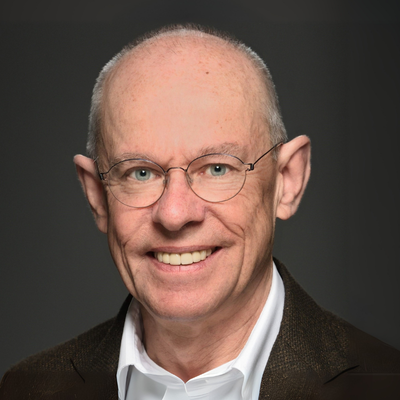
Dr. Manfred Kircher
“With the Sustainable Bioeconomy Strategy, the necessary signals are being sent to shape our lives and economy towards a circularly-oriented and thus future-proofed state.”
After on more than 30 years in the chemical industry, Dr. Manfred Kircher works as a freelance consultant for industrial bioeconomy. His professional positions were in the realm of research and development (Degussa AG, Germany), production (Fermas s.r.o., Slovakia), venture capital (Burrill & Company, USA), partnering (Evonik Industries AG, Germany) and the establishment of the Cluster Industrial Biotechnology’s bioeconomy cluster. He is, among other things, a chair of the CLIB council (since 2014), a chair of the bioeconomy association “BioBall” (“Bioeconomy in the Metropolitan Area,” (since 2019), was appointed to the Sustainable Bioeconomy Council (2020), and is co-chair of the Organics Valorization section of the European Federation of Biotechnology (EFB, 2020).
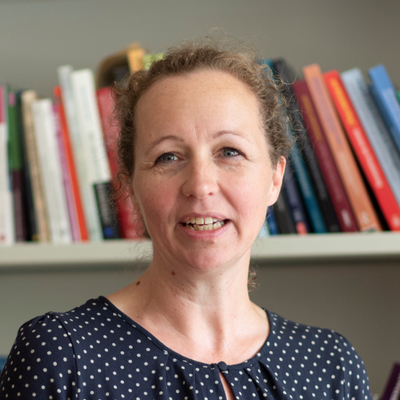
Prof. Dr. Daniela Kleinschmit
Professor Daniela Kleinschmit is the chair of the Forest and Environmental Policy faculty and Vice President for Internationalization and Sustainability at the University of Freiburg. Before accepting her position in Freiburg, she worked six years as an assistant professor and then later as an associate professor at the Swedish University of Agricultural Sciences (SLU) in Uppsala. She received her doctorate in the field of forestry policy at the University of Göttingen. Her research topics include forestry-, environmental-, and agricultural policy as well as bioeconomy policy. Dr. Daniela Kleinschmit is also the vice president of the International Union of Forest Research Organizations (IUFRO) and is actively involved in an excellent international forestry science network.
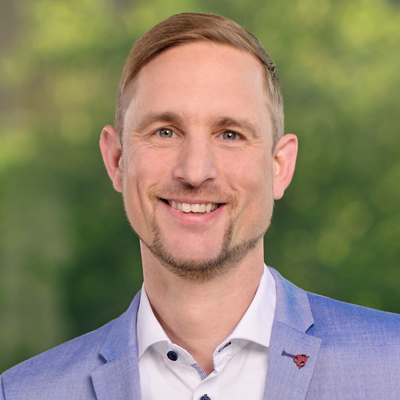
Steffen Koci
"Biological transformation is not only a necessity but also offers an opportunity for innovation and competitive advantages for the economy."
Steffen Koci is an expert in resource efficiency and sustainable innovations. As the head of the Innovation, Environment, and Energy department at the Stuttgart Chamber of Commerce and Industry (IHK Region Stuttgart), he advocates for energy efficiency and sustainable business practices, especially for small and medium-sized enterprises. With his degree as a Dipl.-Ing. (BA) in Supply and Environmental Engineering, he brings knowledge of the energy transition and sustainability. As a KEFF moderator, he supports companies in identifying savings potentials and developing more environmentally friendly and efficient operational methods. In his role as a team leader at the Examination Tasks and Teaching Materials Development Department of the IHK Region Stuttgart, he was responsible for creating exam questions for various industrial training occupations, such as environmental technology professions. Prior to that, he gained practical experience as a project engineer in planning, tendering, and implementing building services systems.
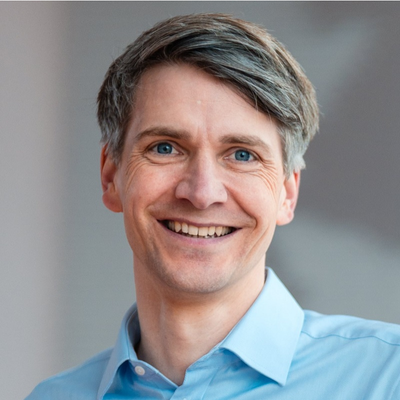
Jan Kohlmeyer
"The urban bioeconomy and biological transformation not only offer new business opportunities for innovative companies but also create chances for implementing climate protection and climate change adaptation measures at the municipal level."
Jan Kohlmeyer heads the Climate Protection Department in the Mayor's Office of Stuttgart. The Climate Protection Department coordinates the Climate Action Plan 2035 for the state capital Stuttgart, manages the Stuttgart Climate Innovation Fund, Europe's largest municipal innovation fund for climate, and has developed Stuttgart's Circular Economy Strategy as well as the Bioeconomy Strategy for the city. Previously, the trained physicist Jan Kohlmeyer spent seven years as a management board member of Stadtwerke Böblingen and before that, he was the managing director of Stadtwerke Pulheim.

Prof. Dr. Sabine Kulling
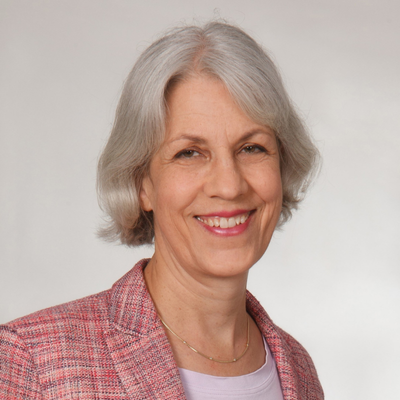
Dr. Barbara Navé
"Biotechnology is an essential building block in transforming our local economy into a resilient, ecologically compatible circular economy."
Ms. Dr. Barbara Navé is a project manager in the Department of Industrial Biotechnology at BASF SE in Ludwigshafen. There, she is primarily responsible for evaluating early research projects involving fermentation processes that produce chemical products with a lower greenhouse gas potential from renewable raw materials. In this context, she is also actively involved in the biotechnology research cooperation network in Germany and Europe. The trained biochemist (University of Cambridge, UK) gained her initial practical experience regarding the economic challenges of the transition to a bioeconomy during her time at a Munich-based startup in red biotechnology. She has been working at BASF for over 20 years in various roles, including more than 10 years in Agricultural Products, where she researched sustainable use of fertilizers and reduction of climate gas emissions in agriculture. In recent years, her focus has shifted to reducing greenhouse gas emissions in industrial production, particularly emphasizing biotechnology as a key component in transforming the economy toward a greenhouse gas-reduced, functional, and sustainable circular economy.
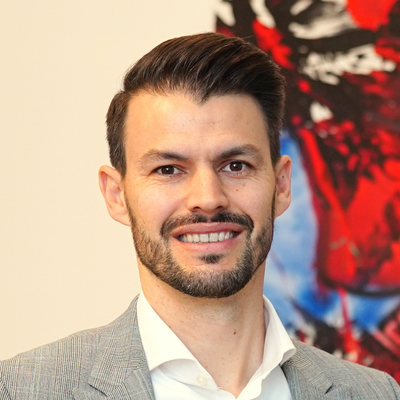
André Olveira-Lenz
“The ecological transformation of the economy can only be achieved with bioeconomical innovations!”
Mr. Olveira-Lenz is a mechanical engineer (Dipl.-Ing.) with a focus on energy, environment, and process technology and has expertise in application-oriented process design and optimization concerning energy, environment, and resource efficiency aspects. He has gathered professional experience at EnBW Kraftwerke AG in the field of optimization of thermal power plants as well as at the Fraunhofer Institute for Solar Energy Systems (ISE) regarding the topics of green hydrogen generation and biomass gasification processes. After that, he moved on to the Südlicher Oberrhein Chamber of Industry and Commerce (Industrie- und Handelskammer (IHK)) as a consultant for energy and resource efficiency. Currently, he is an executive board member and the head of the Innovation and Environment division at the IHK. He is also the head of the Environment Division of the Baden-Württemberg Chambers of Industry and Commerce.
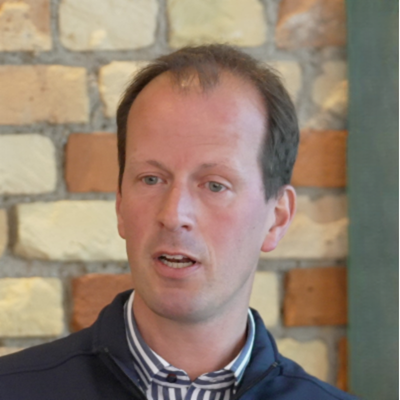
Dr. Peter Risser
"The origin of the bioeconomy is agriculture. The sustainable use of existing resources is the key to a successful transformation."
Dr. Peter Risser has led Südzucker AG's pilot farm at Kirschgartshausen in Mannheim since 2018. Here, innovations for sustainable plant cultivation are researched on 300 hectare field. Topics of this research include, but aren't limited to plant protection, biodiversity, crop rotation, and the use of digital tools. Dr. Risser, who grew up on a sugar beet farm in Rheinland-Pfalz, studied agriculture at the University of Hohenheim with a focus on plant breeding and went on to habilitate in the field of resistance breeding at the state seed breeding institute. In 2010 he started at Südzucker AG as a consultant for agricultural research in Ochsenfurt and was entrusted with the consultation and coordination of an experiment involving 15000 sugar beet farmers in Germany. The aspects of sustainability in sugar beet farming was a major focus of his research.
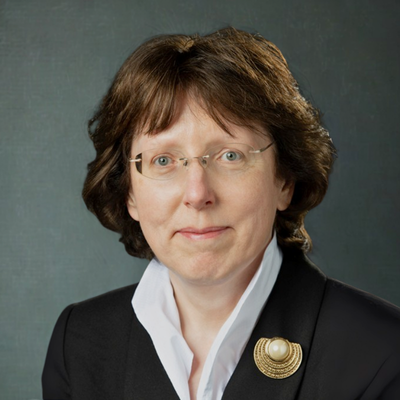
Prof. Dr. Andrea Robitzki
“Baden-Württemberg creates conditions uniquely suited for a sustainable and AI-based bioeconomy.”
Once appointed the W3 professorship “Hybrid Microsensor Systems for Life Science and Process Engineering” at the Karlsruhe Institute of Technology (KIT), Professor Andrea Robitzki is currently the head of Division I - biology, chemistry, and process engineering. After holding a department management position at the Fraunhofer Institute for Biomedical Engineering (IBMT), she was in charge of the Center for Biotechnology and Biomedicine (BBZ) at the University of Leipzig, where she held a C4 professorship for “Molecular Biological-Biochemical Process Engineering.” There, her research concentration was in nano-, microsystem-, and sensor technology, biomedicine, biotechnology, as well as bioelectrocatalysis. As a member of the National Academy of Science and Engineering (acatech), she is active in the realms of thematic networks of health technologies, biotechnology, and bioeconomy.
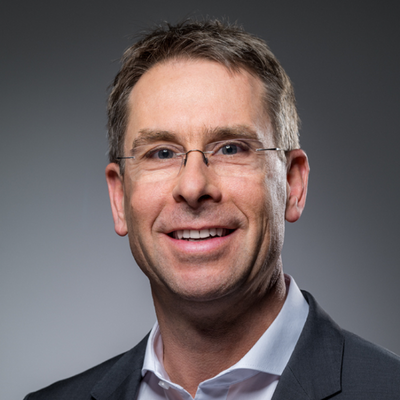
Dr. -Ing. Hannes Spieth
"Let's take full advantage of the opportunities of the bioeconomy and work towards a sustainable, innovative, and resource-conserving future together."
Dr.-Ing. Hannes Spieth studied civil engineering at the University of Stuttgart, in Calgary/Canada and Florida/USA. After his habilitation, which he did between 1995 and 2002 at the Institute of Construction Materials (IWB) at the University of Stuttgart with Prof. Eligehausen concerning the topic of reinforced concrete construction and fastening technology, he did a two year Post-Doc in seismological research in New Zealand (Christchurch). After that, he switched to fischerwerke GmbH in Waldachtal, where he worked in the Fastening Technology division as head of development and research from 2004 until 2011. Since October 2011, he's served as executive director of the Umwelttechnik BW GmbH, the state agency for environmental technology and resource efficiency in Baden-Württemberg.
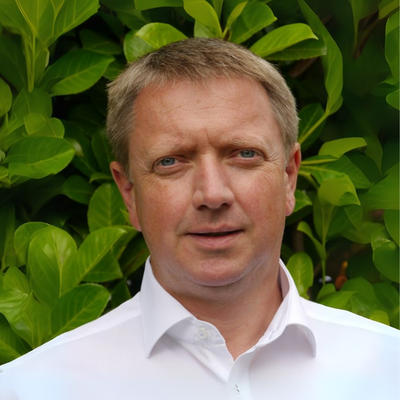
Prof. Dr.-Ing. Ralf Takors
“The results of good research should be implemented for a sustainable economy.”
Professor Ralf Takors has headed the Institute of Biochemical Engineering at the University of Stuttgart since July 2009. Before that, he was responsible for bioprocess development at Evonik Degussa GmbH since 2005. He habilitated (metabolic engineering) at RWTH Aachen University (Rheinisch-Westfälische Technische Hochschule) in 2005 and in 1997 received his doctorate (Dr.-Ing.) in bioprocess engineering. His research took place at Jülich Research Center GmbH. Currently, he is working on new bioprocesses from renewable resources and residues, such as waste gas, developed with the assistance of enzymes, microorganisms, and mammalian cells. The production of commodity and fine chemicals, aromas, food additives, and pharmaceutical active ingredients is, through a combination of molecular biology and engineering research, implemented all the way up to the industrial scale.
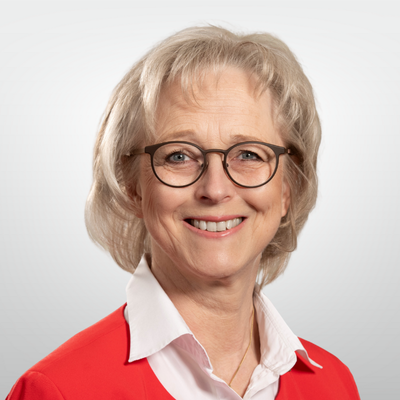
Dr. Doris Wittneben
"The implementation of the Sustainable Bioeconomy Strategy is an important building block for the transformation of the state to a biobased economic system. I gladly take part in bringing innovations for a successful regional economy into practice."
Dr. Wittneben has led the Future Fields department at the Metropolitan Region Rhein-Neckar GmbH since 2021. Before her position at Metropolitan Region, she worked for 16 years as an innovations manager at MVV Energie Mannheim. Beyond that, Dr. Wittneben currently leads multiple projects on the federal and EU level. The career focuses of this certified business economist and habilitated chemist lie in the fields of hydrogen, energy efficiency, and intelligent heating storage systems.
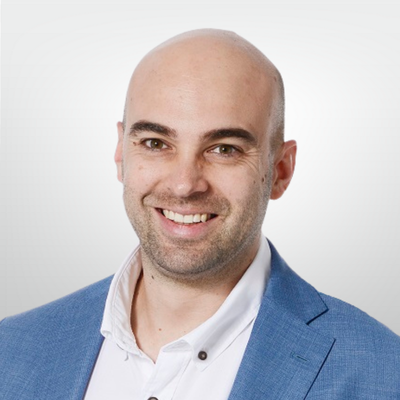
Dr. Tobias Wolfinger
"Products made of renewable raw materials can only reach their true potential for our society and a climate-neutral future once they are seen and accepted by the people. I eagerly support finding pathways towards this acceptance for the transformation process to occur as quickly as possible, using whatever means are available."
Dr. Wolfinger has been the scientific director of Technikum Laubholz GmbH since 2020 and found his calling in transferring technologies out of the lab and into the market. His roots are in the forestry, cellulose, and paper industries. After his vocational training as a papermaker at StoraEnso in Maxau, he went on to study process technologies for paper and packaging production at the München University of Applied Sciences and the University of Jyväskylä. He received his PhD at TU Dresden's Institute for Plant and Wood Chemistry, where he developed stress-strain models as well as analysis algorithms for the 3D structural analysis of fibrous microstructures using computed tomography. He gained career experience during his 12 years employed as a production manager and in the high-voltage insulation materials research and development department at the family-owned Swiss company WEIDMANN. In 2016, he founded WEIDMANN Fiber Technology, which successfully brought nano- and microfibrillated cellulose to the market.